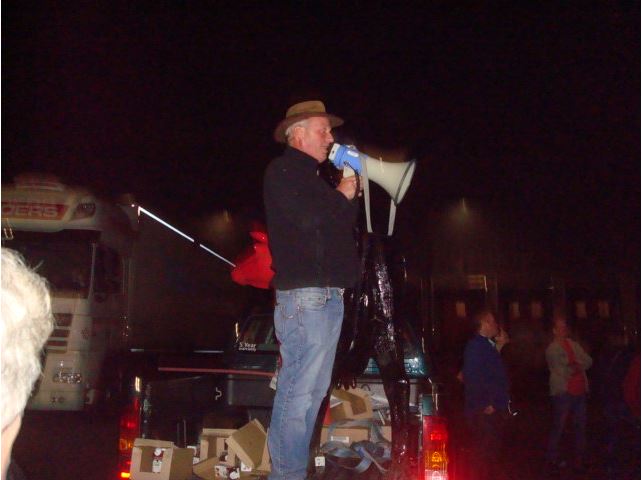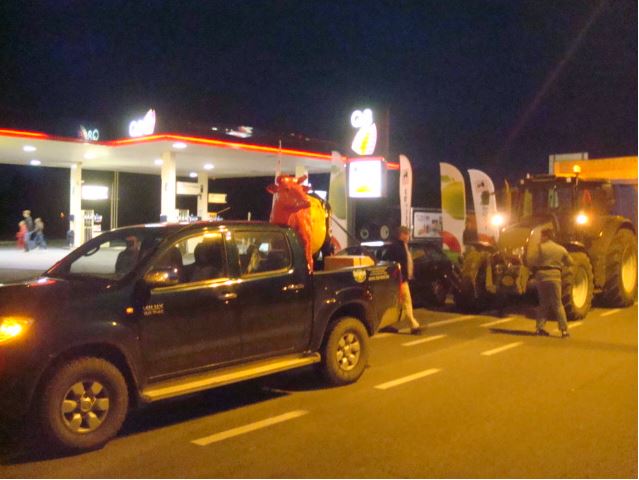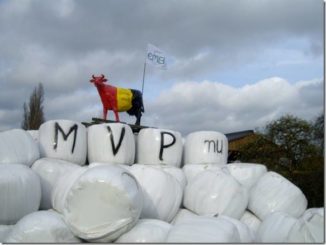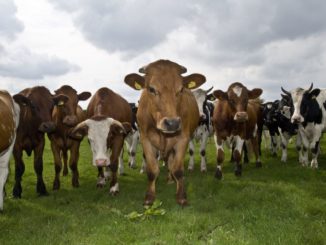Dr. Oliver Moore is the communications director and editor-in-chief with ARC2020. He has a PhD in the sociology of farming and food, where he specialised in organics and direct sales. He is published in the International Journal of Consumer Studies, International Journal of Agricultural Resources, Governance and Ecology and the Journal of Agriculture, Food Systems, and Community Development. A weekly columnist and contributor with Irish Examiner, he is a regular on Countrywide (Irish farm radio show on the national broadcaster RTE 1) and engages in other communications work around agri-food and rural issues, such as with the soil, permaculture, climate change adaptation and citizen science initiative Grow Observatory . He lectures part time in the Centre for Co-operative Studies UCC.
A propos d'Oliver Moore
Oliver voyage beaucoup moins qu’auparavant, pour ce qui concerne son activité professionnelle. Il peut néanmoins admirer par la fenêtre de son bureau les mésanges charbonnières et les corbeaux perchés au sommet du saule dans le jardin de sa maison au cœur de l’écovillage de Cloughjordan, en Irlande. L’écovillage est un site de 67 acres dans le nord du Tipperary. Il comprend d’espaces boisés, des paysages comestibles, des lieux de vie, d’habitation et de travail, ainsi qu’une ferme appartenant à la communauté. Les jours où il travaille dans le bureau du centre d’entreprise communautaire, il profite d’une vue sur les chevaux, les panneaux solaires, les toilettes sèches et les jardins familiaux.
Ce bureau au sein de l’écovillage constitue en effet un tiers-lieu de travail accueillant également des collaborateurs des associations Cultivate et Ecolise, ainsi qu’un laboratoire de fabrication (« fab lab »).
Oliver est membre du conseil d’administration de la ferme communautaire (pour la seconde fois !) et donne également des cours sur le Master en coopératives, agroalimentaire et développement durable à l’University College Cork. Il a une formation en sociologie rurale : son doctorat et les articles qu’il publie dans des journaux scientifiques portent sur ce domaine au sens large.
Il consacre la majorité de son temps de travail à l’ARC 2020. Il collabore avec ARC depuis 2013, date à laquelle l’Irlande a assuré la présidence de l’UE pendant six mois. C’est là qu’il a pu constater l’importance de la politique agroalimentaire et rurale grâce à sa chronique hebdomadaire sur le site d’ARC. Après six mois, il est nommé rédacteur en chef et responsable de la communication, poste qu’il occupe toujours aujourd’hui. Oliver supervise le contenu du site web et des médias sociaux, aide à définir l’orientation de l’organisation et parfois même rédige un article pour le site web.
À l’époque où on voyageait davantage, il a eu la chance de passer du temps sous les tropiques, où il a aidé des ONG irlandaises de commerce équitable – au Ghana, au Kenya, au Mali, en Inde et au Salvador – à raconter leur histoire.
Il se peut que ces jours-là reviennent. Pour son compte Oliver continuera de préférer naviguer en Europe par bateau, puis en train. Après tout, la France n’est qu’à une nuit de navigation. En attendant, il y a toujours de nombreuses possibilités de bénévolat dans la communauté dans les campagnes du centre de l’Irlande.







